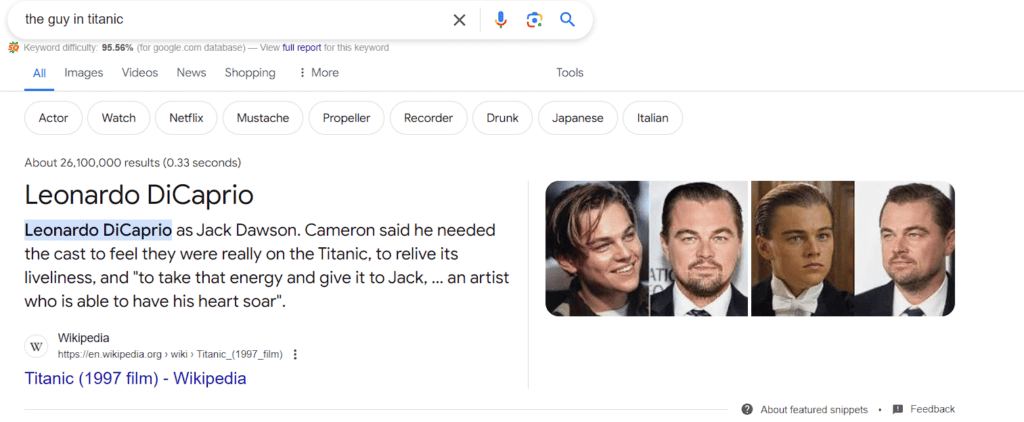Search engines have evolved beyond merely scanning for keywords within the text. They now analyze content to identify and understand entities—people, places, objects, events, ideas, and more. Emphasizing entities in your SEO can optimize your content for a broader range of search queries without relying solely on keywords, thereby improving your site’s search engine ranking and increasing its traffic.
Several years ago, I shifted to entity-based SEO, and the positive outcomes were significant. Here, I aim to guide you on understanding entities and integrating them into your SEO efforts effectively.
Takeaways:
- Shift Focus to Entities: Recognize that modern search engines prioritize entities—meaningful, identifiable concepts—over mere keyword strings. This approach allows for a deeper, more contextual understanding of content.
- Broaden Search Relevance: By optimizing for entities, your content can be relevant for a wider array of queries, enhancing visibility and traffic without solely depending on keywords.
- Utilize Knowledge Graphs: Entities are linked to knowledge graphs, which help search engines understand the relationships and context around these entities, providing more targeted and accurate search results.
- Tools for Identifying Entities: Leverage tools like Ahrefs, Wikipedia, and competitive analysis to identify relevant entities and their attributes related to your website’s content.
- Map Out Content Strategically: Develop a structured approach to content creation by mapping out entities and their relationships, using tools like mind maps to visualize and plan content effectively.
Understanding Entities in SEO
Entities are distinct, identifiable concepts or items recognized by search engines that carry meaning independently of language.
This is a shift from keywords, which are just strings of text. Entities are often linked to a knowledge graph, enhancing the search engine’s understanding of the content’s context. Entities can range from concepts like democracy and climate change to brands like Apple and personalities like Elon Musk.
In 2012, Google enhanced its search capabilities by integrating the Knowledge Graph, a comprehensive database that helps associate different entities, their attributes, and relationships.
Examples and Importance of Entities
If you were to search for “the guy in titanic” years ago, only pages containing those exact words would appear. Today, search engines can recognize that you might be referring to Leonardo DiCarpio, showcasing the progression towards semantic search.

Key Differences Between Entities and Keywords
Entities are defined, meaningful concepts that search engines use to delve deeper into the content, offering a more contextualized understanding compared to keywords. This depth aids in delivering more relevant search results based on the understanding of entities connected through a knowledge graph.
Implementing Entities in Your SEO Strategy
To effectively use entities, you should:
- Identify relevant entities for your website: Utilize tools and resources like your own knowledge, Ahrefs, Wikipedia, and competitor analyses to pinpoint relevant entities.
- Determine relevant attributes for each entity: Attributes describe entities and can also be entities themselves.
- Map and define your entities and attributes: Create visual mind maps to organize and plan content around your entities.
- Link related content: Carefully plan your site’s internal linking structure to enhance SEO and user navigation.
Pro-tip
When leveraging entities in your SEO strategy, begin with thorough research using tools like Ahrefs or SEMrush to identify relevant entities, and manually review high-performing content such as Wikipedia articles to understand how entities are structured and linked. Classify and group these entities by type and hierarchy to anchor and support your content. Enhance your articles by defining each entity clearly, providing contextual examples, and linking to broader topics.
Integrating Keywords with Entity SEO
Despite the shift towards entities, keywords still play a crucial role. They should support the content informed by your entity structure, helping to fill out pages with relevant, searchable terms.
By understanding and utilizing entities in your SEO strategy, you can significantly enhance the relevance and visibility of your content in search results, achieving better alignment with how modern search technologies interpret and categorize information.

